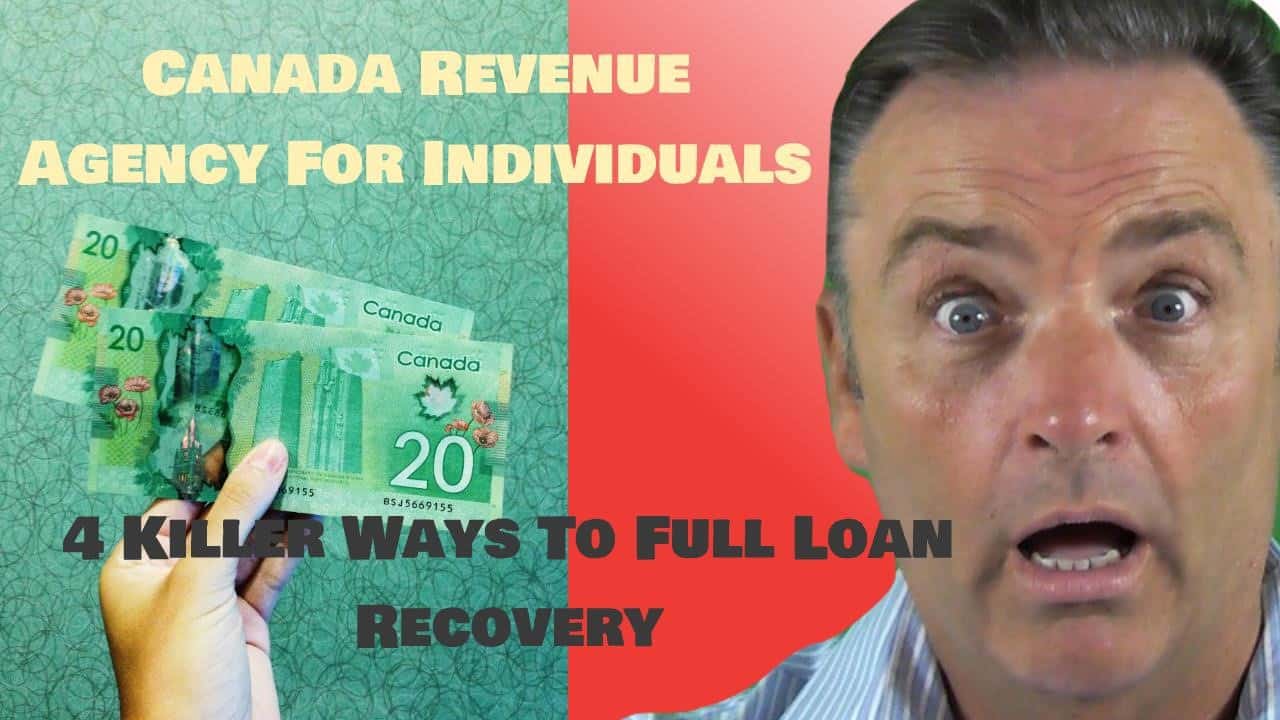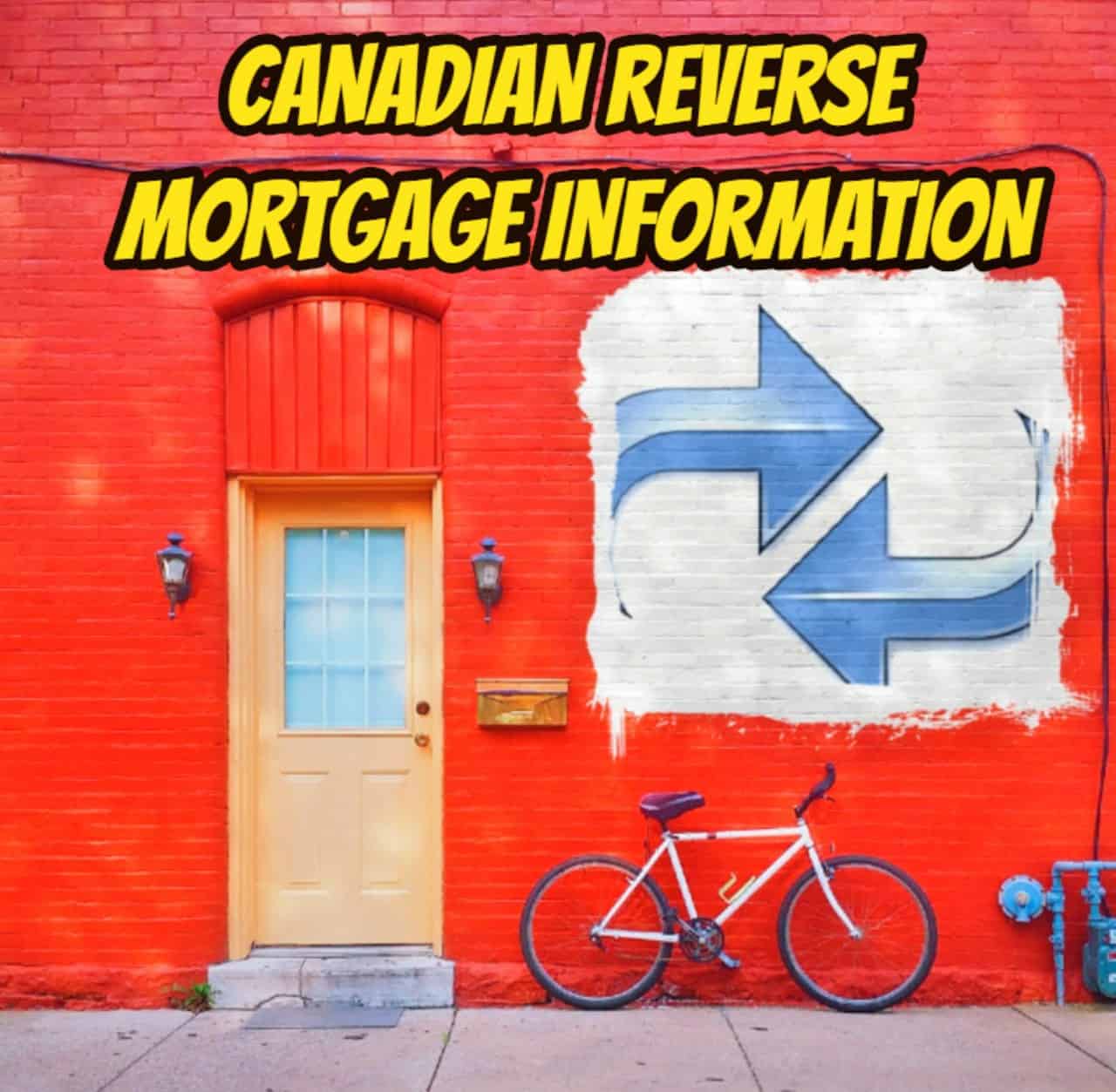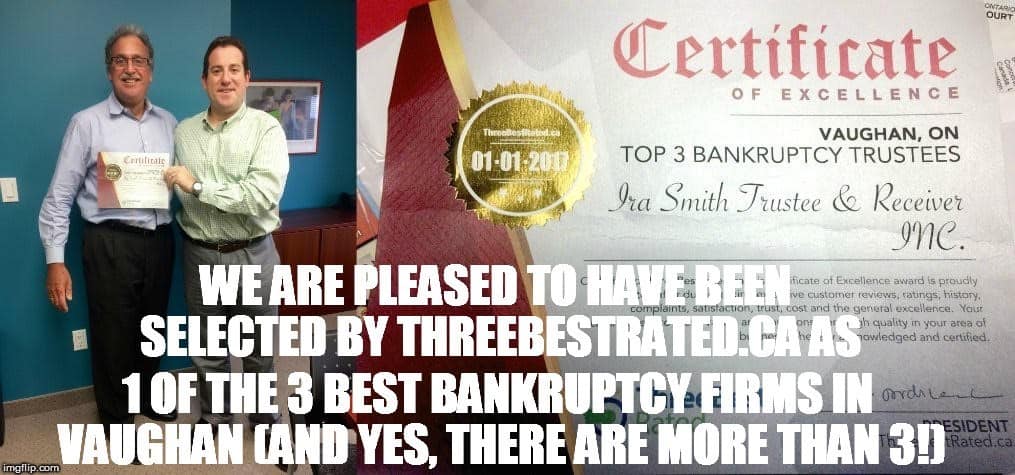Introduction: Understanding Canada’s Cost of Living Landscape
Life in Canada used to mean certain dreams were within reach: a comfortable home, food on the table, and savings for a secure future. But for many Canadians, due to the cost of living over recent years always rising, those dreams feel further away than ever. The Canadian cost of living has skyrocketed, placing immense pressure on families, individuals, and businesses alike. It’s a reality that’s leaving millions of Canadians feeling squeezed, stressed, and struggling with debt.
At Ira Smith Trustee & Receiver Inc., we see firsthand how the rising cost of living affects everyday people and companies. It’s not just a feeling; the numbers prove it. More than four out of ten Canadians (45%) say the cost of living is their number one concern. This isn’t just about small worries; it’s about basic survival. When the price of food, housing, and everything else goes up, and wages don’t keep pace, something has to give. Often, that “something” is financial security, leading to a reliance on credit and, eventually, a heavy debt burden.
This Brandon’s Blog explores the deep impact of Canada’s rising cost of living on consumers, entrepreneurs, and businesses. We’ll look at the unsettling statistics that show just how close many are to financial breaking point, their inability to save for the future, and the struggle to afford even the most basic necessities. More importantly, we’ll discuss practical steps and real solutions for managing debt and finding a path to financial stability, no matter how tough things seem.
The Everyday Battle: Cost of Living and Financial Survival
Imagine trying to keep your head above water when the tide keeps rising faster than you can swim. That’s how many Canadians feel about the cost of living. In 2025, a family of four in Canada needs between $4,000 and $6,000 each month just to cover basic expenses, and in big cities like Toronto or Vancouver, that can jump to $6,500 to $7,500. For someone living alone, monthly costs are often $2,000 to $3,500, possibly reaching $3,900. These aren’t luxury budgets; this is the cost of living for normal people’s housing, food, and transportation.
The main reason for this financial strain is inflation – meaning prices for goods and services keep going up; this causes the rising cost of living. This has led to something called “consumer debt,” which hit a whopping $2.5 trillion in late 2024 and kept climbing to $2.58 trillion by mid-2025. This isn’t just people buying new cars or big screen TVs; many are using credit cards to pay for groceries or their utility bills. The average non-mortgage debt per person reached $22,147 in mid-2025.
Younger Canadians, those under 36, are feeling this cost of living pain even more. They’re racking up higher credit card debt and are more likely to miss payments on their loans. Nearly 1.4 million Canadians missed a credit payment in the second quarter of 2025, a noticeable jump from the year before. This isn’t just about money; it’s also taking a huge toll on mental health. In 2024, nearly 4 out of 10 Canadians (38%) felt mental health struggles because of financial stress, and almost half (49%) were losing sleep worrying about money. When you’re constantly worried about how to pay for basic life necessities, it’s hard to feel secure or healthy.
This constant rising cost of living financial worry also affects how people feel about their future. Many Canadians are losing hope that they’ll ever get ahead. They might feel embarrassed or alone, but it’s important to remember that this is a widespread problem. Three out of five Canadians say their stress and anxiety come from debt. This makes it clear that the high cost of living isn’t just an economic issue; it’s a social and personal crisis affecting the well-being of millions.

Living Paycheque to Paycheque: A Widespread Reality
The idea of living “paycheque to paycheque” means that all the money you earn goes directly to your bills and expenses, with little to nothing left over. For many Canadians, this isn’t just a saying; it’s their daily reality. A recent survey from H&R Block Canada in spring 2025 painted a stark picture: 85% of Canadians are living paycheque to paycheque. This is a huge leap from just a year before, when 60% reported the same. This dramatic increase shows how quickly things are changing and how deeply the rising costs are affecting people’s ability to save and feel financially safe.
Other studies back this up. A Leger poll in late 2023 found that 47% of Canadians were in this situation, and the Canadian Payroll Association previously reported it was around 48%. Regardless of the exact number, the message is clear: almost half, and possibly much more, of working Canadians are spending everything they earn, with no wiggle room.
Why is this cost of living problem happening? It’s a mix of things:
- Inflation: As mentioned, prices for everything are going up.
- Rising Interest Rates: If you have loans or a mortgage, the cost of borrowing money has increased, meaning more of your paycheque goes towards interest payments due to the increase in loan and mortgage costs.
- High Rent and Home Prices: Housing costs are a massive expense for most, taking a huge bite out of income.
- High Taxes: Taxes also reduce the amount of money people have left to spend or save.
Many Canadians, 82% in fact, are worried that their income simply isn’t growing fast enough to keep up with these rising costs. Some even say their paycheque isn’t enough to cover their basic expenses. This isn’t just a problem for people with lower incomes; it’s affecting middle-class families, young professionals just starting out, and even retirees who thought they were prepared.
When you’re living paycheque to paycheque, there’s no room for unexpected cost of living problems. A sudden car repair, a dental emergency, or a lost job can quickly send someone into a deep financial hole. It’s a cycle that’s hard to break, and it fuels stress and anxiety, making it even harder to make clear financial decisions.
No Emergency Savings: A Dangerously Thin Safety Net
When you’re living paycheque to paycheque, building an emergency fund feels impossible. And the statistics show that for many Canadians, it truly is. Around 41% to 50% of Canadians do not have an emergency fund at all. This means they have no savings to fall back on if something unexpected happens. To put it another way, about 46% of Canadians don’t have enough emergency savings to cover three months of essential expenses. This number has worsened over time, dropping from 64% in 2019, who had a three-month buffer, to 55% in 2024.
This lack of savings makes Canadians incredibly vulnerable. What happens if your car breaks down and needs a $500 repair? What if you have a sudden medical bill?
- In late 2022, about one-quarter of Canadians (26%) said they couldn’t cover an unexpected $500 expense. This was more common for women (29%) than men (24%).
- Around half of all Canadians (50% to 51%) would struggle to cover a surprise $1,000 expense. Some even admit their budget is so tight they couldn’t handle any unexpected bills.
- Canadians are worried they couldn’t handle unexpected costs of $1,000 or more.
This is a terrifying situation. It means that a small bump in the road can become a financial disaster. Instead of savings, many Canadians are forced to rely on high-interest credit cards or loans when an emergency hits, digging themselves deeper into debt. More than one-third (35%) of Canadians would use a small loan or credit card for an emergency, and 27% are taking on debt just to cover their basic monthly needs.
The reasons for this are clear:
- High Cost of Living: With so much money going to rent, food, and other necessities, there’s simply nothing left to save.
- High Debt Levels: Many Canadians are already carrying record levels of personal debt, leaving little room for saving.
- Lack of Financial Know-How: Some people struggle with budgeting and planning, even if they have some money left over.
- Job Insecurity: The fear of losing a job also makes people hesitant to save, as they might need that money sooner rather than later.
It’s a vicious cycle where a lack of savings leads to more debt, making it even harder to build up savings in the future.

The Retirement Dream Fades: Unable to Save for the Future
Beyond immediate emergencies, the long-term future is also a major concern for Canadians due to the high cost of living in Canada. The idea of a comfortable retirement, free from financial worry, is becoming a distant dream for many. Recent surveys show just how deep this anxiety runs:
- Fear of Running Out of Money: A survey in August 2024 found that 61% of Canadians are worried they’ll run out of money in retirement. This worry is even higher for younger adults (ages 28 to 44, at 67%) and women (66%). Another survey in early 2025 reported that over three-quarters of Canadians (76%) share this fear because of rising prices.
- Belief in Never Retiring: A truly concerning statistic from April 2025 showed that among Canadians who aren’t retired yet, 59% believe they will never be in a financial position to retire. And 66% think they’ll have to keep working even after they retire to make ends meet. For single Canadians, nearly half (45%) feel that saving for retirement is almost impossible.
- Lack of Preparedness: Almost 40% of Canadians over 50 feel they aren’t financially ready for retirement. Many haven’t even started saving: 49% hadn’t put any money aside for retirement in the past year, and 39% said they had never saved for retirement.
The main reasons for this grim outlook are, again, the high cost of living and existing debt. When most of your income goes towards daily necessities and paying off bills, there’s little left to put into long-term savings like Registered Retirement Savings Plans (RRSPs). In fact, polling data from February 2025 showed that only 39% of Canadians planned to put money into their RRSP in 2025, a 10% drop from the year before. One in ten Canadians simply can’t afford to invest in their RRSP at all.
Canadians also feel they need more money to retire comfortably than ever before. Their retirement savings goal has jumped from $700,000 to $900,000 in just one year. Some even think they need $1.54 million. But the average Canadian’s retirement savings, not including pensions or home equity, is only around $272,000. This is a huge gap between what people have and what they feel they need.
This struggle to save for retirement isn’t just about numbers; it’s about peace of mind and the promise of a dignified older age. When people feel like they can never stop working, it affects their health, their relationships, and their overall happiness.
Feeding the Nation: Food Costs and Grocery Bills
When financial pressures mount, the first things to feel the squeeze are often the most basic. For a growing number of Canadians, affording these essentials has become a daily struggle.
Food Insecurity: The Empty Plate Problem
Food insecurity means you don’t have enough money to buy enough healthy food. It’s a problem that’s getting worse in Canada.
- Millions Affected: In 2024, a staggering 10 million people in Canada’s ten provinces, including 2.5 million children, were living in households that didn’t have enough food. This means over a quarter of the population (25.5%) is food-insecure. This is the third year in a row this number has gone up, reaching a record high.
- Rising Food Bank Use: The demand for food banks is at an all-time high. In March 2024, there were over 2 million visits to food banks across Canada. That’s a huge 90% increase compared to March 2019. Think about it: one-third of all food bank clients are children, and for the first time, nearly one in five (18.1%) food bank users are people whose main source of income is employment. This shows that even people with jobs are struggling to put food on the table.
- Why It’s Happening: The main reason is simple: lack of money. Food prices have soared due to an increased cost of living. From 2021 to 2022, food bought from stores went up by an average of 9.8% across the country. Experts predict another 3% to 5% increase in food prices for 2025, meaning the average family of four could spend an extra $801.56 on food. When housing costs eat up so much of a budget, there’s simply less left for groceries.
- Who Is Most Affected: Certain groups face this cost of living problem more than others. People in lone-parent families, especially those led by women, racialized groups (like Black Canadians), and Indigenous people often experience much higher rates of food insecurity. If you’re living in poverty, your chances of being food insecure are significantly higher.
Food insecurity isn’t just about hunger; it has serious impacts on health, leading to more illnesses, anxiety, depression, and even a shorter lifespan. It also affects children’s ability to learn and thrive.

Decoding Housing Costs: The Biggest Budget Factor
For many Canadians, affording housing prices, like food, has become a daily struggle.
Housing Affordability: No Place to Call Home Comfortably
Housing costs are arguably the biggest driver of the cost of living and, therefore, financial stress for Canadians. Whether you own or rent, real estate prices are making it incredibly difficult to live comfortably.
- Unaffordable Housing: In 2022, Statistics Canada reported that more than one in five Canadian households (22%) were spending 30% or more of their income on shelter. This is the widely accepted line for “unaffordable” housing. For renters, it was even worse, with 33% spending too much on rent, compared to 16.1% of homeowners. By March 2024, the average mortgage payment for a home was eating up almost half (47.9%) of the typical household’s income. In Toronto and Vancouver, it was a shocking 73.1% and 72.0% respectively!
- Homeownership Out of Reach: The dream of owning a home is fading fast. In 2019, nearly 60% of Canadian households could afford a regular condo. By 2023, that number dropped to 45%. For a single-family home, only 26% of households could afford one. Young Canadians are particularly affected, with 72% wanting to buy a home, but nearly half (45%) feel it’s hopeless. A Habitat for Humanity Canada survey in November 2024 revealed that 70% of Canadians believe owning a home has become impossible.
- Sacrificing Necessities for Housing: The most heartbreaking part of the housing crisis is that people are cutting back on other essentials to keep a roof over their heads. The Habitat for Humanity Canada survey indicated that 59% of Canadians, and 75% of renters, are sacrificing basic needs like food, clothing, and even education just to pay for housing.
- Mental Health Toll: The housing crisis is also hurting people’s minds. Two-thirds of renters and one-third of homeowners say their the is negatively affected by housing costs. Young people are even considering leaving Canada or delaying starting a family because of how expensive housing is.
- Rental Market Squeeze: If buying is impossible, renting isn’t much easier. There’s a severe shortage of affordable rental units. Since 2018, the average rent for a two-bedroom place has gone up 70% faster than wages. Renters with children are deeply worried about rent increases and even losing their homes.
- Fear of Losing Your Home: A shocking 57% of Canadians, whether they own or rent, are afraid they might lose their home if their financial situation changes. This fear is highest among younger Canadians and low-income households.
The combination of rising food and housing cost of living creates a daily struggle for survival, pushing more and more Canadians into debt and despair.
The Ripple Effect: How Rising Costs Hurt Canadian Businesses and Entrepreneurs
It’s not just individuals who are struggling with Canada’s high cost of living and rising debt; businesses and entrepreneurs are feeling the pressure too. When consumers have less money to spend because their wages aren’t keeping up with high prices, it impacts businesses, especially small and medium-sized enterprises (SMEs).
Challenges for Businesses:
- Rising Operational Costs: Just like families, businesses face higher costs for almost everything. This includes raw materials needed to make products, the wages they pay their employees, and energy bills. A Statistics Canada study reported that approximately 65.4% of businesses are expected to face cost-related challenges in mid-2025. The inflation rate is expected to be a major hurdle for almost half of all businesses.
- Increased Borrowing Costs: When interest rates go up, it costs businesses more to borrow money. This makes it harder for them to repay existing loans or get new funding to grow. Many small businesses rely on lines of credit, which are directly tied to the Bank of Canada’s interest rates.
- Rising Delinquency Rates: More businesses are falling behind on their payments. Over 56,000 businesses missed at least one financial payment in the second quarter of 2024, a 10.2% increase from the year before. The rate of businesses missing payments by 60 days or more also increased. A big reason for this is that businesses are struggling to pay back government loans they took out during the pandemic (like CEBA loans).
- Reduced Investment and Productivity: When money is tight and borrowing is expensive, businesses often cut back on plans to buy new machinery or equipment. This affects overall business investment and can lead to lower productivity for the country as a whole.
- Pandemic Debt Burden: Many businesses are still weighed down by debt from the COVID-19 pandemic. The average small business debt related to the pandemic was estimated at $139 billion in August 2021. With higher debt servicing costs, many are finding it hard to catch up. Business insolvencies (when a business can no longer pay its debts) jumped by over 41% in 2023, the biggest increase in 36 years. Many of these insolvencies were linked to struggles with CEBA loan repayments.
- Sector-Specific Stress: Certain industries are feeling the pinch more than others. Transportation, construction, and retail businesses are facing major financial stress. For example, nearly 4.3% of transportation businesses missed payments for over 60 days in Q2 2024.
When individuals struggle, businesses also suffer. Less consumer spending means less income for businesses, which can lead to layoffs, reduced growth, and even business closures. It’s an interconnected web where the financial health of one group affects the other.

Finding a Way Forward: Strategies for Managing Financial Hardship
Facing overwhelming debt and the rising cost of living can feel impossible, but there are always options. The key is to take action and seek professional help. You don’t have to face this alone.
For Individuals:
- Understand Your Money: Create a Budget: This is the first and most important step. You need to know exactly how much money is coming in and where every dollar is going. Write down all your income and all your expenses, from rent and groceries to your morning coffee. The Financial Consumer Agency of Canada (FCAC) has useful tools like a Budget Planner that can help. This step helps you see where you can cut back.
- Cut Down Expenses: Once you have your budget, look for areas where you can spend less. Even small changes add up. Can you cook more at home instead of eating out? Can you cancel subscriptions you don’t use? Every dollar saved is a dollar that can go towards debt or an emergency fund to meet unexpected expenses.
- Make a Debt Repayment Plan: Don’t just pay the minimum on your credit cards. High-interest debts are like a hole in your pocket. Focus on paying off the debts with the highest interest rates first (called the “debt avalanche” method) or tackle the smallest debts first to gain momentum (the “debt snowball” method). Having a plan makes it less overwhelming.
- Avoid New Debt: This might seem obvious, but it’s crucial. Before borrowing more money, think about all your other options. If you’re struggling to pay current bills, taking on more debt will only make things worse.
- Build an Emergency Fund (Even a Small One): Even if you can only save a small amount each week or month, start building a safety net. This fund can prevent you from using credit cards when unexpected costs arise. Aim for at least $500 to start, then work towards three months of living expenses.
- Talk to Your Creditors: If you’re having trouble making payments, don’t ignore your creditors. Call them. Many lenders have hardship programs or might be willing to work with you on new payment terms. It’s always better to be proactive than to let things spiral out of control.
- Seek Professional Advice: This is where a Licensed Insolvency Trustee (LIT) comes in. An LIT like Brandon Smith from Ira Smith Trustee & Receiver Inc. is a financial professional regulated by the Canadian government. They are the only professionals who can provide advice on all debt solutions, including the formal options under the Bankruptcy and Insolvency Act. They can help you understand your situation, explore all your options, and guide you to the best solution for you.
For Businesses:
- Assess Your Financial Health: Get a clear picture of all your business debts, including interest rates, payment schedules, and what you owe.
- Prioritize and Consolidate Debts: Focus on paying off high-interest business debts first. You might also consider consolidating multiple debts into a single, easier-to-manage loan if the terms are better.
- Optimize Cash Flow: Ensure you’re invoicing clients on time and following up quickly on unpaid bills. Negotiate payment terms with your suppliers if possible. Maintaining a healthy cash reserve is crucial for unexpected costs.
- Increase Revenue and Reduce Spending: Look for ways to boost sales, maybe by exploring new markets or introducing new products/services. At the same time, cut unnecessary costs without harming the quality of your products or services.
- Look for Government Programs and Grants: The Canadian government offers various programs, grants, and alternative financing options for businesses. Research what’s available that might fit your situation.
- Seek Professional Business Financial Advice: Just like individuals, businesses can benefit greatly from professional financial advisors. They can help create a budget, identify areas for improvement, and explore debt solutions tailored for businesses. A Licensed Insolvency Trustee also deals with corporate insolvencies and can guide formal business debt relief options.
Government Resources and Debt Relief Options
The Canadian government understands that people and businesses face financial challenges due to the cost of living. You could be excused from thinking that the government doesn’t care because you aren’t seeing any federal government programs that either reduce the cost of living or provide Canadians with more disposable income to meet the rising cost of living. The federal government does offer various resources and regulated programs to help.
Formal Debt Relief Options (Overseen by a Licensed Insolvency Trustee):
The federal government regulates two main legal solutions for debt forgiveness under the BIA. These are serious options that can offer a fresh start, but they must be managed by a Licensed Insolvency Trustee (LIT).
- Consumer Proposal: This is a legal agreement between you and your creditors to pay back a portion of your debt over a period of up to five years. It can reduce your overall debt by up to 80%, and once accepted, your creditors cannot charge interest or penalties. It also stops collection calls and wage garnishments. A consumer proposal is a powerful tool that allows you to avoid bankruptcy while still dealing with your debts. Many Canadians find this a good way to get out of overwhelming debt while keeping their assets.
- Bankruptcy: If a consumer proposal isn’t the right fit, bankruptcy is another legal process that provides debt relief. It’s typically a last resort, involving the surrender of non-exempt assets (some assets, like certain pension funds or tools for your job, are “exempt” and protected). Bankruptcy also stops collection actions and can provide a fresh financial start. Both consumer proposals and bankruptcy are overseen by an LIT to ensure fairness and adherence to the law.
Other Government-Related Resources and Programs:
- Financial Consumer Agency of Canada (FCAC): This government agency offers excellent online tools and calculators, including a Budget Planner and a Financial Goal Calculator. They also have a free 12-module course called “Your Financial Toolkit” that covers a wide range of personal finance topics.
- Government Aid Programs: For individuals facing income loss, programs like Employment Insurance (EI), the Canada Recovery Benefit (CRB), and the Canada Emergency Response Benefit (CERB) have provided crucial support during tough times.
- Student Loan Forgiveness Programs: Some provinces offer programs to help with student loan debt, such as the BC Loan Forgiveness Program or the Quebec Loan Remission Program. It’s worth checking if your province has such initiatives.
- CPA Canada’s Financial Literacy Program: Chartered Professional Accountants of Canada (CPA Canada) offers unbiased financial literacy education through various resources like publications, podcasts, and free in-person sessions delivered by financial professionals.
- Bank of Canada’s Financial Education Resources: The Bank of Canada provides a list of trustworthy Canadian and international websites with financial information on topics like inflation, banking, and personal finance.

cost of living
Beyond the Numbers: Taking Control and Moving Forward
The statistics paint a challenging picture for Canadians struggling with the cost of living and debt. From living paycheque to paycheque with no emergency savings to the inability to plan for retirement or afford basic necessities like food and housing, the pressure is immense. Entrepreneurs and businesses are also caught in this financial squeeze, facing rising costs and increasing rates of delinquency.
But knowing the problem is the first step towards a solution. The most important takeaway is that you are not alone, and help is available. Ignoring debt won’t make it disappear; it will only grow and cause more stress.
Key Takeaways and Actionable Advice:
- Acknowledge the Problem: The high cost of living is real, and it’s impacting almost everyone. Don’t feel ashamed or embarrassed by financial difficulties.
- Take Proactive Steps: Start with a budget. Know where your money goes. Look for ways to reduce expenses, even small ones.
- Prioritize Debt Repayment: Focus on high-interest debts first. If you have multiple debts, a strategy like debt avalanche or snowball can help.
- Build Your Safety Net: Even if it’s slow, start putting money into an emergency fund. Every dollar helps create a buffer against unexpected costs.
- Communicate, Don’t Hide: If you can’t pay your bills, talk to your creditors. They might be able to help you adjust your payments.
- Seek Professional Help Immediately: This is perhaps the most crucial advice. A Licensed Insolvency Trustee (LIT) like Brandon Smith at Ira Smith Trustee & Receiver Inc. can provide expert, unbiased advice on all your debt options. They can explain consumer proposals, bankruptcy, and other strategies in a way that makes sense, helping you choose the best path to get rid of your debt and regain control of your financial life. This advice is completely confidential and can be the first step towards truly rebuilding your financial future.
- Prioritize Your Well-being: Financial stress takes a heavy toll. Remember to take care of your mental and physical health. Lean on your support network and consider professional help if needed.
Cost of Living Conclusion
The path to financial freedom in Canada’s current economic climate may be challenging, but it is not impossible. With the right information, a clear plan, and professional guidance, you can overcome your cost of living and debt challenges and move towards a more secure and hopeful financial future.
You’re not alone in this. There’s a path forward, and it starts with reaching out for the right kind of help. Take that step—you deserve it. If you’re a GTA resident dealing with overwhelming debt, don’t wait for your credit situation to get worse. As a licensed insolvency trustee serving Toronto, Mississauga, Brampton, Markham, and surrounding areas, I’m here to help you understand your options.
Free consultation available:
- No obligation to proceed
- Complete review of your debt and credit situation
- Clear explanation of how debt solutions affect your Equifax credit score
- Practical next steps you can take immediately
Remember: Your current financial situation doesn’t define your future. With the right help and information, you can overcome both debt challenges and credit score problems.
As a licensed insolvency trustee serving the Greater Toronto Area, I encourage consumers and business owners to view financial difficulties not as failures but as challenges that can be addressed with proper guidance. By understanding the warning signs of insolvency and seeking professional advice early, many people and businesses can find a path forward – whether through restructuring, strategic changes, or in some cases, an orderly wind-down that protects their future opportunities.
Remember: The earlier you seek help for company insolvency concerns, the more options you’ll have.
If you or someone you know is struggling with too much debt, remember that the financial restructuring process, while complex, offers viable solutions with the right guidance. As a licensed insolvency trustee serving the Greater Toronto Area, I help entrepreneurs understand their options and find a path forward during financial challenges.
At the Ira Smith Team, we understand the financial and emotional components of debt struggles. We’ve seen how traditional approaches often fall short in today’s economic environment, so we focus on modern debt relief options that can help you avoid bankruptcy while still achieving financial freedom.
The stress of financial challenges can be overwhelming. We take the time to understand your unique situation and develop customized strategies that address both your financial needs and emotional well-being. There’s no “one-size-fits-all” approach here—your financial solution should be as unique as the challenges you’re facing.
If any of this sounds familiar and you’re serious about finding a solution, reach out to the Ira Smith Trustee & Receiver Inc. team today for a free consultation. We’re committed to helping you or your company get back on the road to healthy, stress-free operations and recover from financial difficulties. Starting Over, Starting Now.
The information provided in this blog is intended for educational purposes only. It is not intended to constitute legal, financial, or professional advice. Readers are encouraged to seek professional advice regarding their specific situations. The content should not be relied upon as a substitute for professional guidance or consultation. The author, Ira Smith Trustee & Receiver Inc., and any contributors do not assume any liability for any loss or damage.












